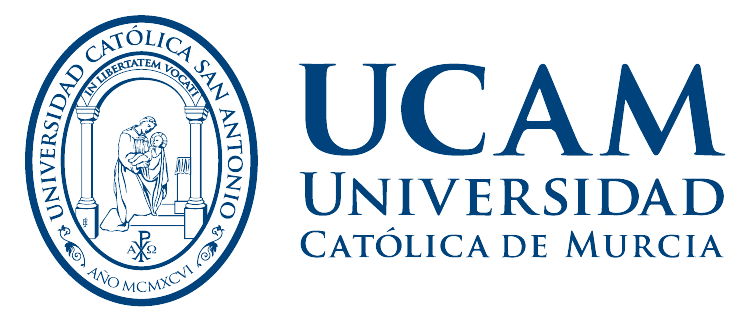BA Honours in
Business Management (Top Up)
The BA (Honours) in Business Management offers a comprehensive understanding of core business principles, focusing on strategic decision-making, leadership, and organizational performance. This programme equips students with the skills required to excel in diverse business environments, emphasizing areas such as marketing, finance, operations, and human resource management. It prepares graduates to effectively address modern business challenges, foster innovation, and drive sustainable growth in a competitive global marketplace.

The BA (Honours) Business Management programme from Magna Carta College, in collaboration with UCAM, provides a comprehensive foundation in modern business practices and strategies. This programme equips students with essential skills in leadership, decision-making, and effective management, focusing on real-world applications to prepare for a dynamic global business environment.
Students will explore core areas such as marketing, finance, operations, human resource management, and business strategy, with a strong emphasis on problem-solving and analytical thinking. The curriculum is designed to enhance students’ understanding of the principles of business management while fostering innovative and strategic approaches to tackle real-world challenges.
With a global outlook, the programme prepares graduates to thrive in competitive markets, emphasizing adaptability, ethical business practices, and sustainable growth. It aims to develop future business leaders who can confidently navigate the complexities of modern organizations.
Programme Modules
The programme includes the following modules: (CO: Compulsory; OP: Optional; MD: Master’s Dissertation;)
The aim of this module is for students to gain a critical understanding of leadership and change management theories and practise in modern organisations. Students will comprehend the key business drivers of change, the change management context, change management theory and approaches, resistance to change, and change globalisation. Finally, students will gain an understanding of how organisations manage change. Change is an unavoidable and constant feature of organisational life. This module will require students to apply their academic knowledge to real-world organisations and gain a thorough understanding of the challenges that organisations face. Students will understand the challenges and uncertainty associated with working at a strategic level, as well as the skills and knowledge required. Leadership theory will be related in this module to change management theory.
- Understand the strategic and operational importance of change in organisat ons
- Critically evaluate change management theory, strategies and tactical options
- Synthesise unplanned and planned change and organisational development approaches
- Critically evaluate the different style of leaderships as applied to change management
- Understand change within the context of organisational leadership, business strategy and globalisation.
The current global economic environment necessitates the acquisition of specialist skills by students in order to be successful in dynamic, uncertain, and entrepreneurial environments. This module will provide students with such skills by emphasising creativity, initiative, and risk-taking. The module will also cover a variety of tools and skills for assessing innovation in an organisation. In a highly competitive and complex global operating environment, innovation is critical to growth and business advancement. However, resistance to innovation (internal or external) is enormous, partly because people and businesses become aligned to ‘comfort zones’ and existing organisational heritage. Learning about the importance of leadership in the innovation process is a major component of the module. Effective leadership can dramatically alter an organization’s willingness to embrace or avoid innovation and change. This module will examine leadership competencies, styles, group maturity, servant leadership, politics and power, and strategies for organisational development. Students will examine businesses and make recommendations on how to improve their performance using knowledge from previous modules. It is expected that students will participate in this module by challenging and debating issues in class and at work.
Objective of this Module:
- Innovation processes, innovation management, and innovation strategy in organizations
- General knowledge about structures and processes in organizations
- Specific knowledge of models and conditions pertaining to innovation processes in organizations, e.g.: – Models of Innovation – Radical Innovation – Incremental Innovation – Disruptive Innovation – Process Innovation – Business Model Innovation – Innovation Culture – Innovation Management
- The critical analysis of both contents and process of decision making requires mastering the basic strategic management concepts as well as understanding how innovation impacts on the ability to succeed in a fast-evolving environment.
- Design a successful business models and how to perceive a sustainable business models innovation.
The aims of this module are to enable students to critically appraise electronic commerce solutions within the wider range of business strategies. The idea of conducting business and trading electronically is not new. However, the growing integration of computing and telecommunications, as well as easy access to the Internet and global communications, has provided industry with an alternative communication channel, one that has the potential to significantly change the way corporate bodies are organised and run. The module introduces students to the concept that all organisations are increasingly relying on digital channels to deliver goods and services and conduct business.
Objective of this Module:
- The appropriate digital economy solutions within a company’s strategic objectives;
- Effective digital economy solutions, in a company context, in order to enable the selection of an appropriate digital economy solution; The contribution of digital economy makes through the whole business cycle
- Understanding of ideas about the digital economy and strategies to enable organisations to respond to it;
- Ability to develop a business report that examines the opportunity for strategic improvement in current business practice;
- Assessment of the importance of digital economy concepts to an organisation’s future development.
The course has been designed to develop student understanding of the principles of information and communications technologies and implementation. It provides students with a specific reference to advanced interactive systems, and integrates this understanding with practical experience. This module will encourage students to reflect on the nature of our relationship with technology. Students will consider such questions as: What role does technology play in forming the identity of individuals in everyday interactions? Do we use technology as an instrument to achieve our human aims or is it an independent force that determines conditions of our lives? The module describes the roles technology plays in our experience of, and attitude towards modern life.
Objective of this Module:
- Understand the overview of Computerisation through application of computer systems, database management of decision support systems.
- Appreciate the importance of computer mediated communication.
- Understand the social and organisational aspects of workplace, and develop skills for ICT application in the workplace.
- Understand the role of multimedia technology in creation of global communities.
Key highlights of course
- Flexible Scheduling for Professionals
- Live Interactive Learning
- Strong Focus on Analytical and Strategic Thinking
- Comprehensive Career Services
- Relevant Curriculum Tailored to Industry Needs
- Global Perspective on Business Practices
- Global Perspective on Business Practices
- Lifelong Learning and Alumni Network
- Leadership and Management Training
- Entrepreneurial Thinking and Innovation
Interested? Let us Contact You
Meet our Faculty

Professor David Faulkner, Academic Dean
In today’s globalised world, advanced business education is crucial for success. Our BA (Hons) Business Management programme at Magna Carta College, in partnership with UCAM, equips you with the skills and knowledge to excel in leadership or entrepreneurial roles.
At Magna Carta College, we focus on empowering students with the qualities needed to stand out in a competitive job market. Join our supportive learning community and take the next step towards a successful career.
We invite you to join our transformative learning
environment, dedicated to empowering and
guiding you on your journey towards a bright and
successful future!

Maggie Faulkner
Head of Partnerships

Murray Cooper
Programme Lead | Head of Quality

Dr Ali Raza Nemati
Deputy Programme lead / Lecturer

Sumbhal Manzoor
Lecturer

Dr. AR Shahid
Lecturer
Career Advancement with our
BA Honours Business Management
Our BA (Hons) in Business Management program is designed to provide you with comprehensive knowledge and skills to thrive in key managerial roles across diverse industries. The curriculum emphasizes core business principles, strategic management, and leadership, blending theoretical foundations with practical applications to develop critical thinking, problem-solving, and decision-making abilities.
Upon completion, graduates will be well-equipped to navigate the complexities of the modern business environment, assume leadership positions, or drive innovation within their organizations. This degree fosters adaptability, strategic insight, and a global perspective, ensuring you are prepared to excel in today’s dynamic, interconnected business landscape.
FAQs
A BA (Hons) Business Management degree is an undergraduate program designed to equip students with the foundational knowledge and skills needed to succeed in various business and management roles across industries.
Typically, the BA (Hons) Business Management programme lasts three to four years, depending on the institution and mode of study.
The BA (Hons) Business Management programme is intellectually engaging, offering a balanced mix of theoretical knowledge and practical application. It requires consistent effort, critical thinking, and active participation in assignments and projects.
The programme can be pursued through various modes, including full-time, part-time, or online learning, allowing flexibility for students with diverse needs.
The curriculum covers core subjects such as Strategic Management, Marketing, Finance, Human Resource Management, and Business Ethics, with options to specialize in areas like Entrepreneurship, International Business, or Supply Chain Management.
Online students will use advanced learning platforms, such as virtual classrooms, discussion forums, and resource hubs, supported by tools like Zoom, Microsoft Teams, and Moodle for a seamless learning experience.
Online BA (Hons) degrees are increasingly valued by employers, especially when offered by reputable institutions. They demonstrate the graduate’s ability to manage time effectively, adapt to technology, and pursue self-directed learning.

I chose Magna Carta College because of its convenient learning process, which was suitable for my working schedule. I would definitely recommend MCC to all my peers. I had easy access to the learning program, documentation, etc. In August 2019, the qualification helped me to join my current company, with an increase in salary and status.
Umid Z., Level 7 Diploma


